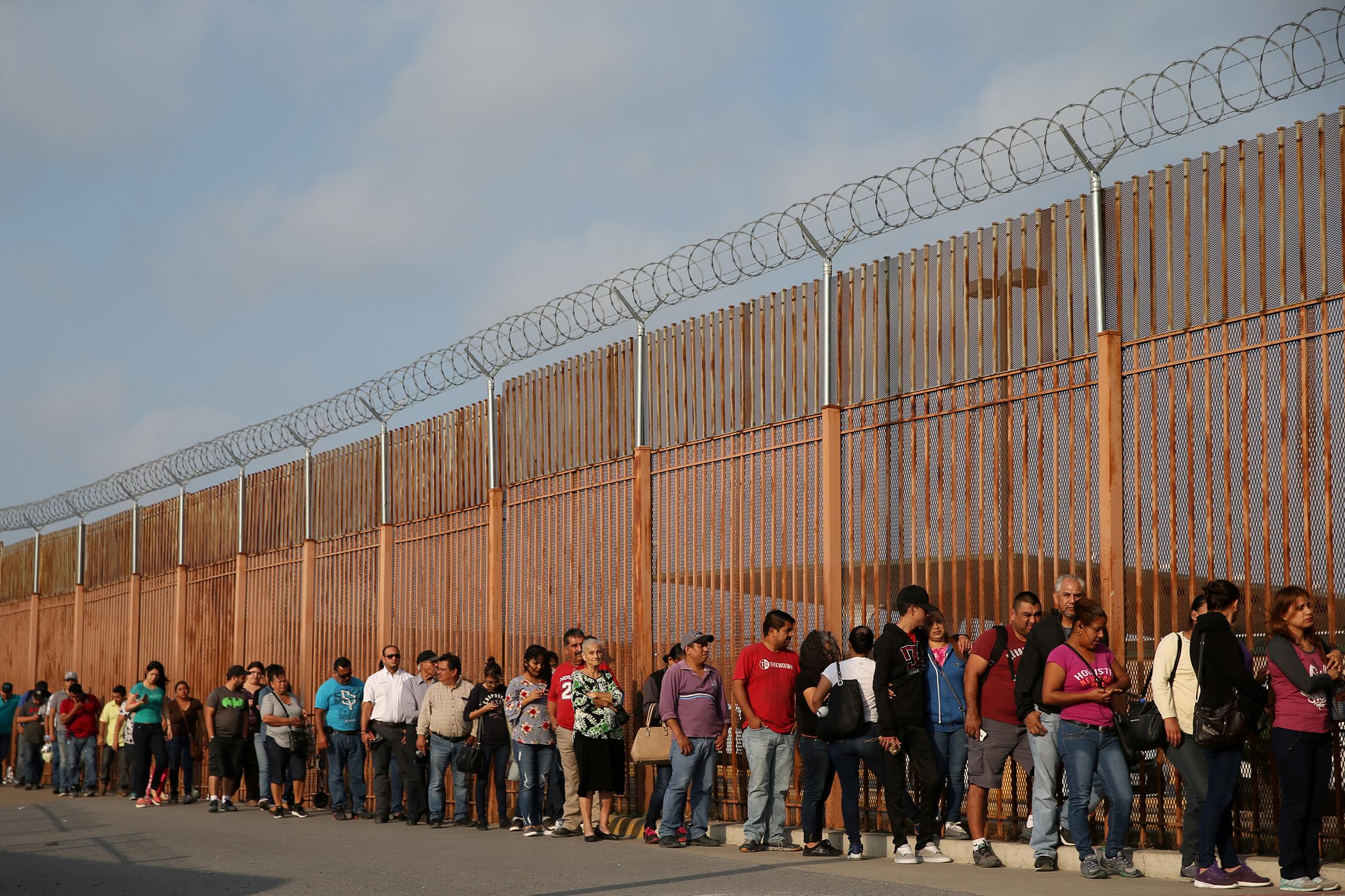MEXICO CITY, July 23 (Xinhua) -- U.S. President Donald Trump is using Mexico's reliance on trade with its northern neighbor to promote his anti-immigrant agenda with an eye to getting re-elected in 2020, Mexican experts said.
Trump threatened to raise tariffs on Mexican imports unless the Mexican government took strong steps to stem the flow of Central American migrants heading north. After the two countries negotiated an immigration deal, Mexico registered a record number of migrant detentions in June.
According to Rodolfo Garcia, a research professor at the Autonomous University of Zacatec, the Trump administration negotiated with an unfair advantage, given that such punitive tariffs would spell a disaster for an economy that ships up to 80 percent of its exports to the United States.
"The United States knows that Mexico is totally chained to the few export sectors of its automobile, computer and telephone assembly plants, and its agricultural activities, and so we are extremely vulnerable," Garcia said.
Faced with the prospect of steep tariffs, and no viable alternative, the Mexican government must have negotiated in a state of panic, Garcia said.
The outcome of the uneven negotiations is that Mexico has become a reluctant partner in Trump's immigration crackdown, he said.
Thousands of troops belonging to Mexico's newly created National Guard -- an anti-crime force designed to fight rising violence around the country -- were instead deployed to the country's southern border with Guatemala to help control the influx of migrants.
"Mexico has become the giant wall" Trump wanted to build to discourage immigration, said Garcia.
According to the National Immigration Institute, authorities detained 29,153 undocumented migrants in June, the highest monthly figure since records were kept in 2001.
In addition, "Mexico is taking care of 20,000 migrant asylum seekers the United States returned to us" while U.S. authorities process their applications, said Garcia.
U.S. Secretary of State Mike Pompeo met with Mexico's Foreign Affairs Minister Marcelo Ebrard in Mexico City on Sunday to review the results of the immigration measures, which both sides had agreed to assess 45 days after implementation.
The meeting went well, said Ebrard, adding they agreed to review the immigration strategy again in another 45 days.
These terms put Mexico in a position to be periodically checked on over the 15 months left until U.S. presidential elections are held in November 2020, noted Garcia.
"You get the impression that over the year and three months that the electoral process is going to last in the United States, Mexico will continue to be held hostage (to the scheme), will continue to really be the pinata that is regularly whacked so that Trump can recover his traditional conservative base," the researcher said.
"In that sense, it won't matter that Mexico sacrifices its independence and sovereignty, and becomes the Border Patrol financed by Mexican taxes," he added.
The executive director of the Salvadoran Migrant Institute, Cesar Rios, said Washington has exaggerated the immigration crisis for political gain.
Although the United States is also El Salvador's main export market, the Central American country should be careful in reacting to a situation designed to win votes, Rios said, referring to Washington's attempt to have both El Salvador and Mexico accept the third safe country status, so they can host asylum seekers.
To better deal with U.S. pressure tactics, Mexico and Central American countries should insist on reaching a regional agreement on immigration that would include development financing to alleviate the poverty that drives migrants north, said Rios.
"Iimmigration is not going to stop through an agreement between one country and another. Immigration is not going stop by militarizing migrant routes or by erecting walls, or by reaching an agreement to not let anybody in," he said.





